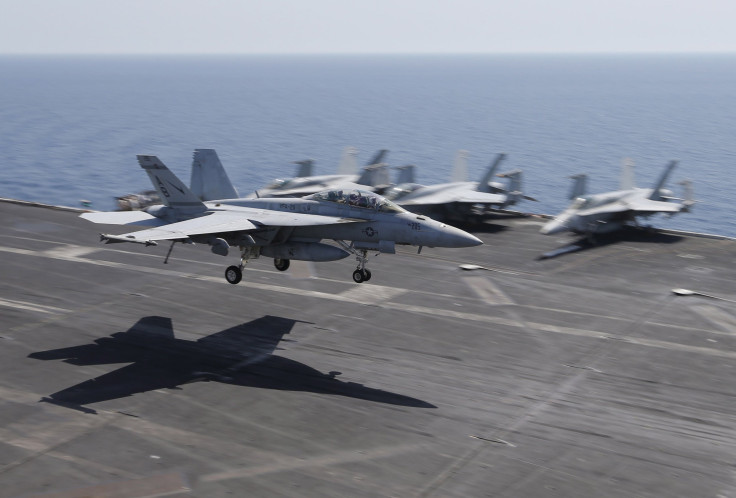US, Russia To Resume Air Safety Talks, As Tensions Rise Over Syria Conflict

Russia and the U.S. have agreed to begin talks on air safety, as both countries' militaries carry out bombing campaigns in Syria. The talks could begin in the coming days, as the former cold war adversaries seek to avoid unintended clashes.
"The Department of Defense has received a formal response from the Russian Ministry of Defense regarding DOD's proposal to ensure safe air operations over Syria," Pentagon spokesman Peter Cook told Reuters. "Department leaders are reviewing the Russian response and talks are likely to take place as soon as this weekend."
Talks are likely to deal with how much separation there should be between U.S. and Russian aircraft and which language and radio frequencies crews should use for communications, the BBC reported.
Concerns about clashes between Russian and U.S. or coalition aircraft over Syria have been mounting in recent days, as tensions between Russia and NATO member Turkey have risen, after alleged incursions by Russian aircraft into Turkish airspace.
The U.S. has ruled out military cooperation with Russia in Syria, but had been keen to establish an air safety dialog. U.S. and Russian officials had conducted air safety talks last Thursday, but the U.S. subsequently complained that it had heard nothing from Moscow since then.
The U.S. and Russian campaigns in Syria appear to be operating at cross purposes. While Russia claims that all of the targets it has struck in the country are affiliated with the Islamic State group, also known as ISIS, the Financial Times reported that 90 percent of the strikes so far have hit areas where the group is not known to operate, based on the location data released by the Russian armed forces. The U.S. and NATO see Russia's campaign as targeting moderate rebel groups, some of whom are U.S.-backed, who are fighting against Syrian President Bashar Assad.
Russia's air campaign has reportedly been a boost to the Sunni militant group, which has been able to use the airstrikes against its opponents to seize strategically significant territory in the north of Syria.
“Daesh has exploited the Russian airstrikes and the preoccupation of the Free Syrian Army in its battles in Hama, and advanced in Aleppo,” one rebel commander told the New York Times, using another term for ISIS.
© Copyright IBTimes 2024. All rights reserved.












